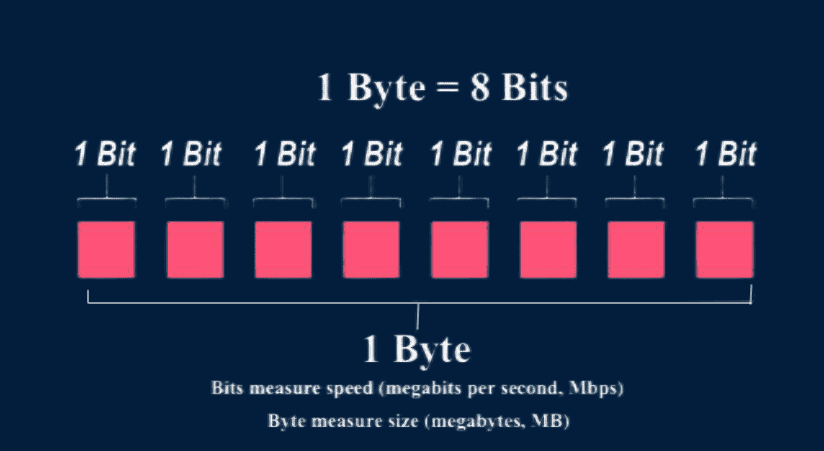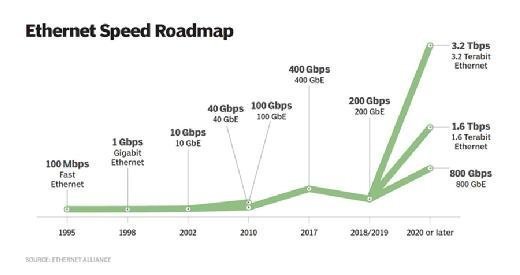Why Megabits Per Second Make A Difference for Remote Work Effectiveness
Why Megabits Per Second Make A Difference for Remote Work Effectiveness
Blog Article
Exactly How Megabits Per Second Influence Your Online Tasks
The idea of megabits per second (Mbps) plays an essential role in shaping our online experiences. Greater Mbps can boost efficiency and reduce disruptions, while insufficient speeds might foster disappointment and inefficiency.
Recognizing Megabits Per Second
When taking into consideration internet speed, it's vital to recognize the idea of megabits per second (Mbps), which works as a basic dimension for data transfer prices. This statistics quantifies just how much information can be transferred over a web connection in one second, providing a clear understanding of performance abilities - Megabits Per Second. For context, one megabit amounts to one million bits, and Mbps is frequently made use of to reveal transmission capacity for numerous online tasks
A greater Mbps suggests a faster internet link, making it possible for individuals to do jobs such as downloading files, searching web sites, and engaging in on-line gaming a lot more successfully. For example, normal surfing calls for around 1-5 Mbps, while streaming high-def video might require 5-25 Mbps. Comprehending these needs is crucial for establishing the ideal internet speed required for specific tasks.
In addition, the number of tools attached to a network can affect general performance. Numerous users streaming, pc gaming, or downloading all at once can strain offered data transfer, resulting in slower speeds - Megabits Per Second. Evaluating personal online behaviors and needs is important in choosing an internet strategy that aligns with one's needs, ensuring a seamless digital experience
Streaming and Buffering Issues
Streaming high-definition material has actually come to be a staple of modern on the internet enjoyment, yet it is frequently accompanied by discouraging buffering concerns. These disruptions can substantially interfere with the checking out experience, bring about frustration and possible loss of target market interaction. Buffering occurs when the information transferred from the streaming solution is not obtained quickly enough to keep a smooth playback, usually as a result of insufficient web rate measured in megabits per second (Mbps)

Additionally, real-time streaming can be impacted by network congestion, which occurs when multiple tools share the exact same data transfer. Consequently, enhancing connection speed and making sure appropriate Mbps is crucial for a seamless streaming experience. As streaming services continue to progress, recognizing the effect of Mbps on buffering concerns stays essential for customers looking for nonstop enjoyment.
Online Gaming Performance
The effect of net rate on online tasks expands beyond streaming, significantly influencing on-line pc gaming efficiency. In affordable pc gaming, low latency and high data transfer are vital for a seamless experience. A fast link decreases lag, permitting players to respond quickly to in-game events, which can be the difference between triumph and defeat.
Data transfer, measured in megabits per second (Mbps), plays an essential function in supporting several tools and pc gaming systems all at once. Inadequate transmission capacity can bring about dropped links or minimized game quality, adversely influencing gameplay. Online multiplayer games need considerable information transfer, especially throughout peak pc gaming hours when various gamers are online.
Hectic first-person shooters demand greater speeds visit the website to maintain responsiveness, while turn-based method games may function fairly well on reduced rates. As on the internet pc gaming proceeds to progress, with raising visual fidelity and more intricate multiplayer settings, the demand for higher Mbps will only escalate.
Video Conferencing Quality
In today's digital landscape, video clip conferencing quality is greatly affected by internet speed, particularly in regards to transmission capacity and latency. Premium video calls call for enough transmission capacity to transmit sound and video clip data flawlessly. Usually, a check here minimum of 1.5 Mbps upload and download speeds is recommended for conventional interpretation video, while high-definition video conferencing generally requires a minimum of 3 Mbps.
Latency, or the hold-up in between sending and getting information, additionally plays an important role in the customer experience. Greater latency can lead to resemble, lag, and disjointed communications, which can impede partnership and interaction during meetings.
In addition, several participants in a video meeting can stress offered data transfer, demanding also greater speeds. Network congestion, usually brought on by simultaneous tasks like streaming or downloading, can further break down video clip quality. Therefore, for organizations relying upon video conferencing for remote partnership, comprehending the connection between megabits per total and second communication high quality is crucial for maintaining efficiency and boosting online interactions.
Selecting the Right Internet Plan
Choosing an appropriate web strategy is important for guaranteeing optimum performance in various on-line activities, particularly in settings that demand high transmission capacity, such as video conferencing and online gaming. Megabits Per Second. When thinking about a web plan, it is important to evaluate both the speed and information allowance to match your specific use requirements
For houses with multiple customers participating in simultaneous activities, a strategy supplying higher megabits per second (Mbps) is suggested. Commonly, a minimum of 25 Mbps is ideal for conventional streaming and browsing, while plans exceeding 100 Mbps are more effective for more extensive tasks. Additionally, consider the nature of your online tasks; video conferencing needs a minimum of 1.5 Mbps submit speed, while online pc gaming might require a lower latency yet consistent link.
Endless data strategies can protect against strangling and disturbances, particularly if heavy usage is anticipated. By thoughtfully picking a net strategy tailored to your needs, you can boost your on-line experience, guaranteeing smooth, undisturbed accessibility to your preferred activities.
Final Thought
In conclusion, the significance of megabits per second (Mbps) in forming on the internet activities can not be overstated. A comprehensive understanding of individual or home Mbps demands is crucial for selecting a suitable web plan that adequately sustains varied online tasks and user demands.

Typically, a minimum of 25 Mbps try this out is appropriate for conventional streaming and browsing, while strategies surpassing 100 Mbps are more effective for even more extensive tasks. Furthermore, take into consideration the nature of your online activities; video conferencing calls for at least 1.5 Mbps post speed, while on-line video gaming might need a lower latency however consistent link.
Report this page